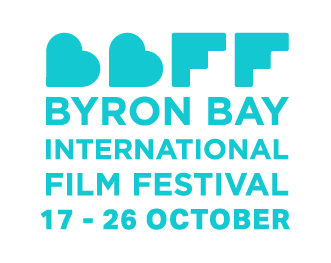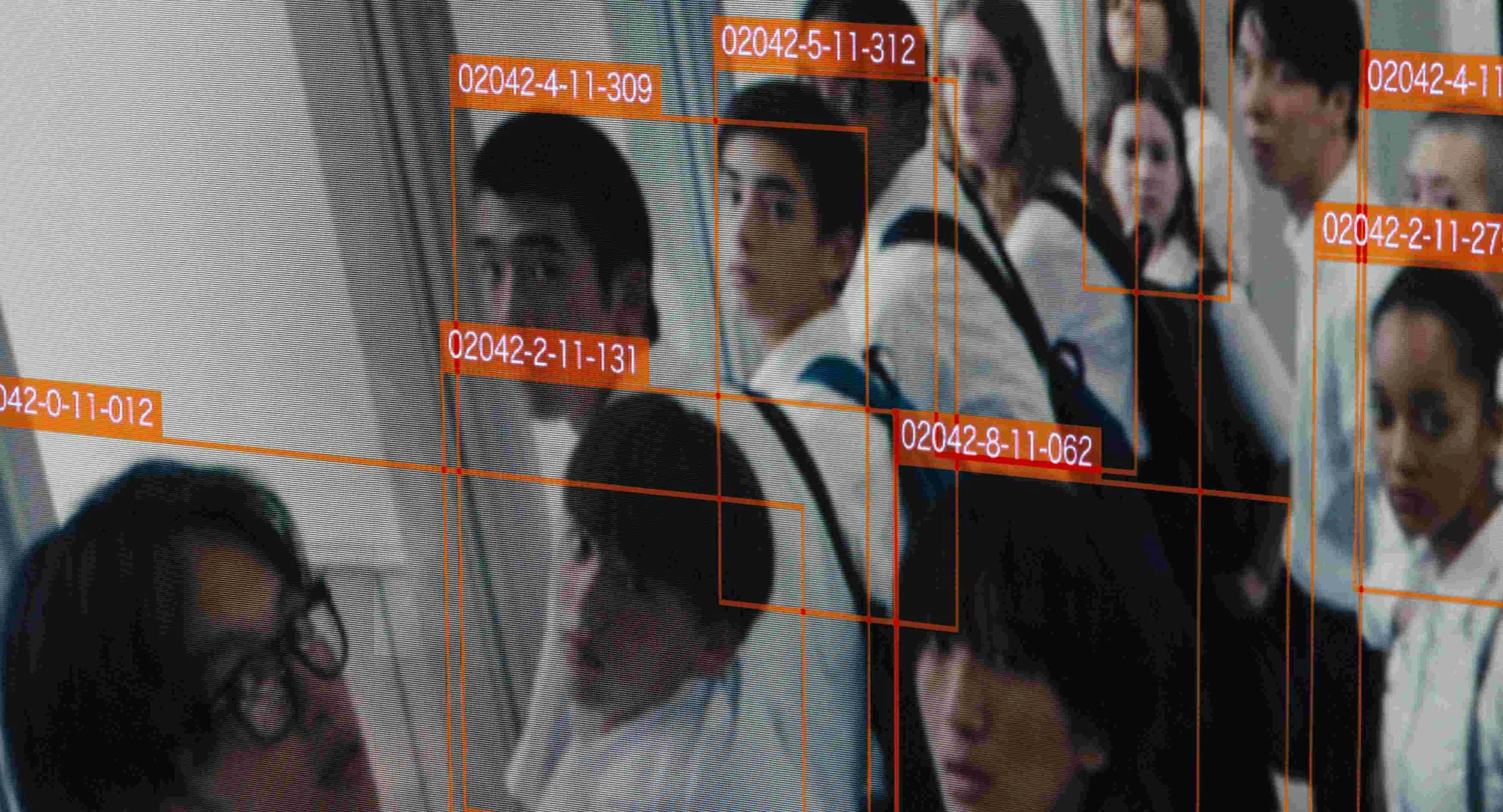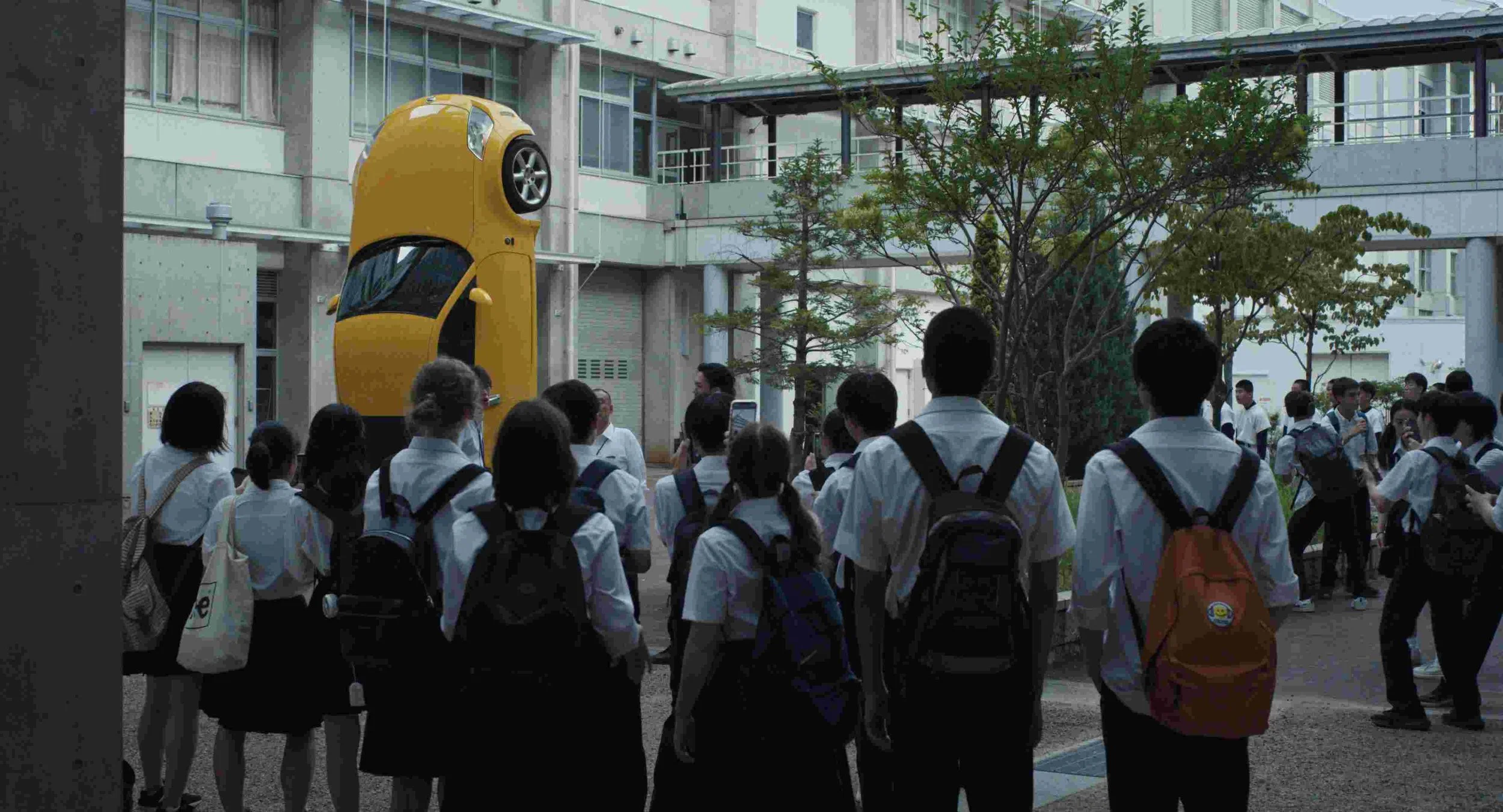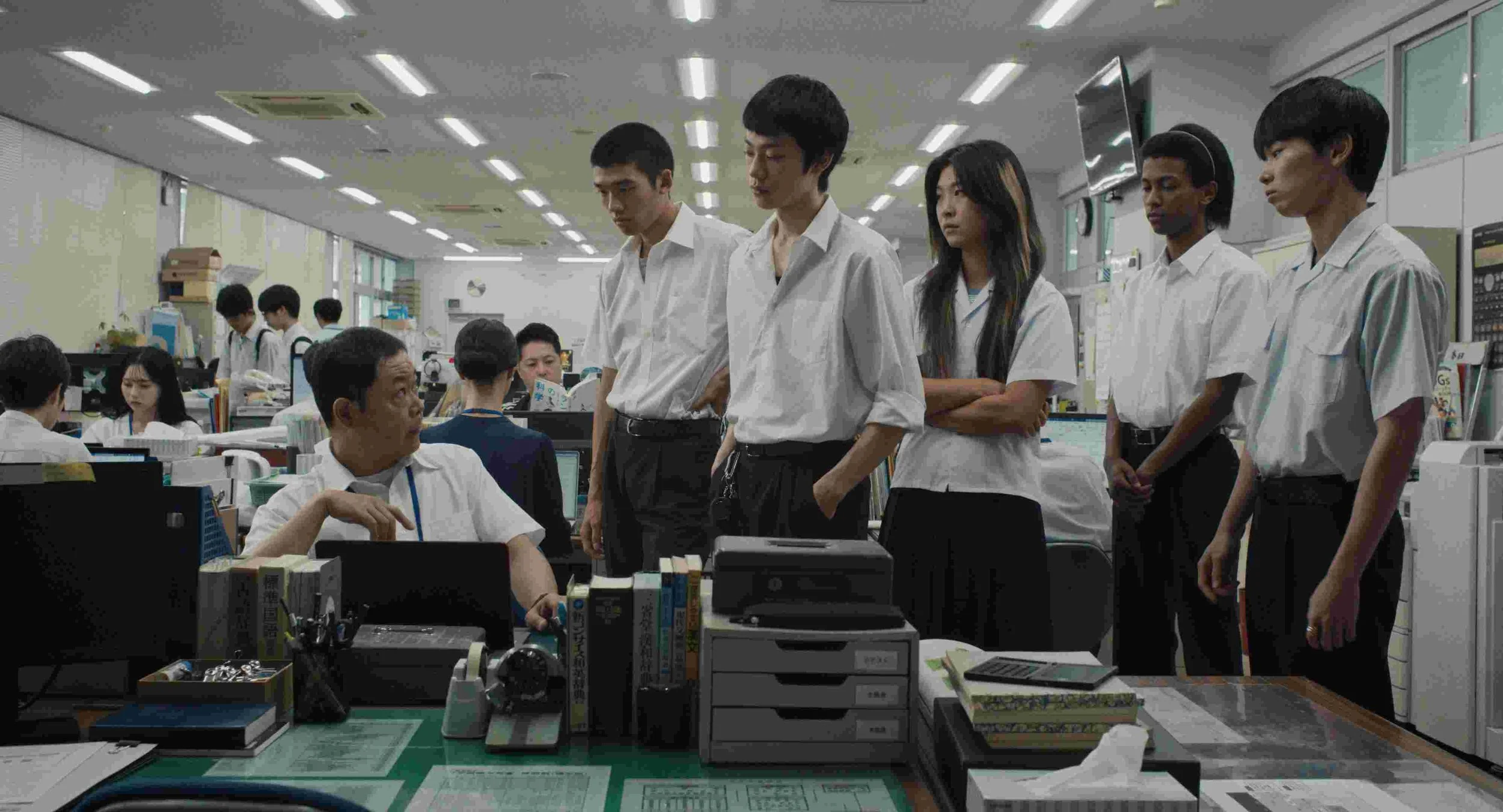BBFF2025 Meet the Filmmaker: Neo Sora
Happyend
Set in a near-future Tokyo, Happyend follows a group of teenagers as they confront surveillance, social prejudice and the constant threat of natural disaster, while finding solace in friendship, rebellion and music.
Sora, son of the late composer Ryuichi Sakamoto, has drawn on both personal experience and wider social anxieties to craft a story that is both intimate and political.
Sora was co-director of Ryuichi Sakamoto: Opus (2023), which premiered at the Venice Film Festival. Happyend marks his narrative feature debut, and it also premiered at Venice.
He says the idea of Happyend came from the constant anticipation of earthquakes in Japan.
It’s often described as a safe country, but living there means constantly anticipating the next major earthquake. I wanted to capture that low-level anxiety and extend it to other fears such as surveillance, authoritarianism and xenophobia. The teenagers in the film live with those pressures every day, yet they still find ways to assert themselves and be joyful.
Although Happyend unfolds in a near-future Tokyo, Sora stresses that the film reflects the present reality of digital life and its emotional consequences.
The film takes place in the near future, but it’s very much about the present. I think we’re already living in a world where surveillance and data shape how we think and behave. What happens when young people grow up knowing that they’re being watched all the time? How does that change the texture of intimacy?
I wanted Happyend to be a film about young people negotiating the world we’ve built for them - a world of surveillance, political anxiety, and invisible pressure. I didn’t want to moralise or explain their actions, but rather observe how they create their own forms of resistance, humour, and joy within it.
Identity and belonging are central themes. Born in the US and raised between Japan and America, Neo Sora embodies both cultures, and his experiences and perspectives resonate deeply throughout the film.
I grew up between cultures, and questions of identity have always been central to my life. In Happyend, Kou is Zainichi Korean, a community often marginalised in Japan. I wanted to show how young people negotiate those layers of identity - school, family, ethnicity - and how they create their own sense of belonging despite exclusion.
Music runs throughout the story, offering both escape and expression.
For these teenagers, making and sharing music allows them to express feelings they can’t articulate otherwise.
Growing up with a father like Ryuichi Sakamoto meant I was surrounded by music, and it taught me how sound can become a language of resistance and connection.
Sora hopes audiences leave the film moved by its unease as well as its vitality.
I don’t see Happyend as dystopian. It’s not about warning people; it’s about paying attention. The world already feels dystopian in many ways, so maybe what we need now is empathy, not fear. The world these young people inhabit is uncertain, but they carve out spaces of joy and solidarity. If audiences reflect on how we might protect that spirit in our own societies, the film will have done its work.
HAPPYEND SCREENS ON SUNDAY 19 & FRIDAY 24 AT PALACE BYRON BAY





